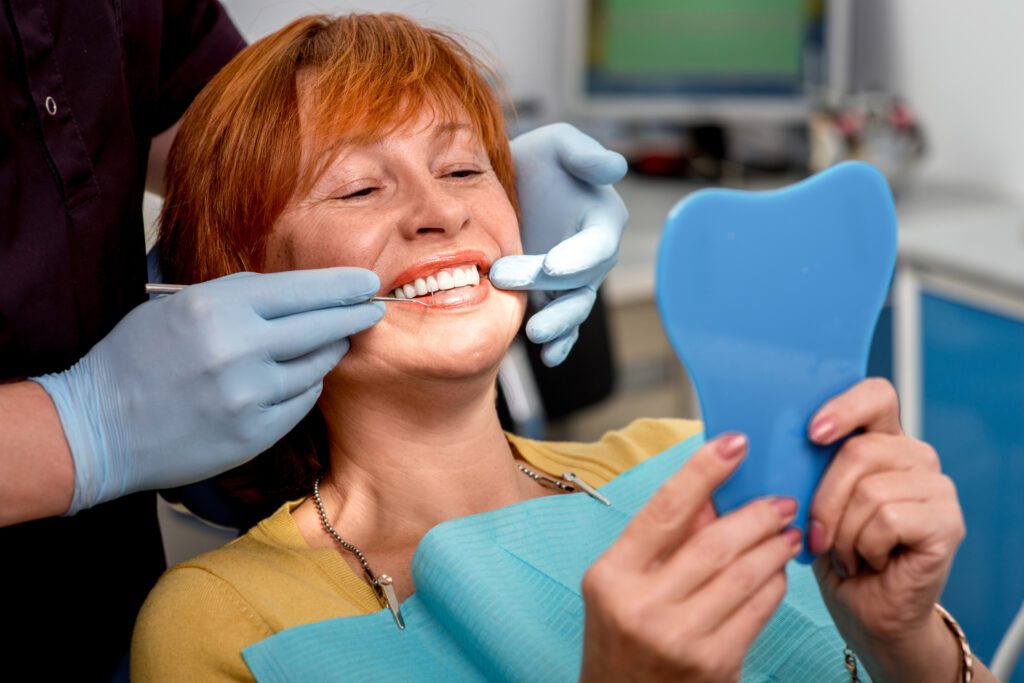Getting dental implants is an exciting step toward restoring your smile, but the work doesn’t end when you leave our Owings Mills dental office. Proper care after your procedure makes all the difference in how well your implants heal and how long they last. Think of your new implants like a freshly planted tree – they need the right care to take root and thrive.

Taking Care of Your New Dental Implants
The First Few Days Are Key
Your mouth needs gentle treatment while it begins healing right after your implant surgery. Stick to soft foods like mashed potatoes, yogurt, and soup for the first 3-4 days. Avoid anything crunchy, sticky, or hot that could bother the sensitive areas. That means saying no to popcorn, chips, and hot coffee for a little while. The implant site is forming important connections with your jawbone during this time, so being careful now prevents problems later.
Keeping Your Implants Clean
Your implants need regular cleaning just like natural teeth, but with some special considerations. Use a soft manual toothbrush at first. Electric brushes can be too harsh on healing gums. Gently brush around all sides of the implant crown, paying extra attention to where it meets your gums.
For cleaning between teeth, try a water flosser or special implant-safe floss that won’t scratch the surface. If you have removable dentures attached to implants, take them out to clean thoroughly with a denture brush and cleaner.
Watch for Warning Signs
Your implants should feel comfortable and secure once healed. Call us right away if you notice any looseness, pain when chewing, or changes in how your bite feels. Also check regularly for any visible damage to crowns or dentures.
People with implant-supported dentures should look for worn locator caps or o-rings that might need replacement. We’ll check for these issues during your regular visits too. But speaking up about any concerns between appointments helps us catch small problems before they cause serious issues.
Habits That Help or Hurt Healing
What you put in your body affects how well your implants integrate with your jawbone. Smoking and tobacco use are especially risky because nicotine slows down blood flow to your gums. This makes it harder for the implant to bond properly with your bone.
Alcohol can also interfere with healing if consumed during recovery. Even after you’ve healed, smoking increases your long-term risk of implant failure by making you more prone to infections around the implant.
Why Regular Checkups Matter
Professional cleanings and exams are actually more important after getting implants. Our hygienists use special tools designed just for implants that clean thoroughly without scratching the surfaces. We’ll check your bite alignment, test how secure the implants feel, and clean those hard-to-reach areas you might miss at home. Most implant patients in our Owings Mills office come in every 3-6 months at first, then we adjust the schedule based on how everything looks.
Making Your Investment Last
Dental implants can last 20 years or longer with proper care, but only if you maintain them. The titanium posts fuse with your jawbone, but you will eventually need to replace the crowns or dentures attached to them. Being gentle with your implants and keeping up with hygiene helps everything last as long as possible. We’ve seen patients keep their original implants for decades by following these simple care steps.
Dental Implants FAQs
How long should I avoid hot foods or drinks after implant surgery?
It’s best to avoid hot foods and drinks for at least 24 to 48 hours after surgery. Heat can increase blood flow and disrupt clotting, which may interfere with healing. Stick to lukewarm or cool foods during this period. We may also give you specific dietary guidelines based on your case.
What signs might indicate an infection around my implant?
Watch for swelling that doesn’t go down, persistent pain, redness, or pus at the site. A bad taste, fever, or loose implant can also be warning signs. If you notice any of these symptoms, contact our office promptly for evaluation.
What should I do if food gets stuck around the implant?
Use a soft-bristled toothbrush, floss, or an interdental brush to clean the area gently. Avoid using sharp objects or picking at the site, especially during early healing. Keeping the area clean is essential to prevent infection or inflammation.
Should I avoid certain sports or activities with dental implants?
Contact sports or high-impact activities should be avoided during the healing phase. Once healed, implants are strong and stable, but wearing a custom mouthguard is smart if you’re active. This helps protect your implants and other teeth from injury.
How soon after implant surgery can I brush my teeth?
You can usually brush your teeth the day after surgery, but avoid the surgical site for the first few days. Use a soft toothbrush and follow your dentist’s specific instructions. Gentle cleaning supports healing without irritating the implant area.
What type of toothpaste is best for cleaning around implants?
Use a non-abrasive toothpaste without harsh whitening agents or baking soda. Look for options for sensitive teeth or those approved for implant use. We may also recommend a low-foaming, pH-balanced formula for safe, effective cleaning.
Can I floss around dental implants like I do with natural teeth?
Yes, but be extra gentle and use floss designed for implants if possible. Some patients use floss threaders, soft picks, or water flossers to clean under the gumline and between implants. Regular flossing helps prevent peri-implantitis and keeps the area healthy.
We’re Here to Help
If you’re ever unsure about how to care for your implants or notice something that doesn’t feel right, don’t hesitate to call us at (410) 697-6290 or request an appointment with Dr. Ed Lazer online. Dr. Lazer and our team would rather answer a “silly” question than have you struggle with concerns alone.
Whether you need a refresher on cleaning techniques or have noticed changes in your implants, we’re happy to help anytime. Your implant journey doesn’t end with surgery. We’re partners in keeping your smile healthy for a lifetime.
Remember, implants look, feel, and function like teeth, but they do need a bit of special attention. By following these care guidelines and maintaining regular dental visits, you’ll protect your investment and enjoy all the benefits implants offer.
